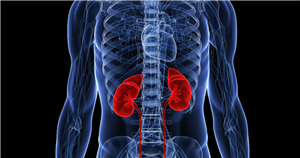HHS and ASN announce new KidneyX artificial kidney funding

The American Society of Nephrology and the U.S. Department of Health and Human Services are offering $10.5 million for a new prize competition from the Kidney Innovation Accelerator.
WHY IT MATTERS
Phase 2 of the Artificial Kidney Prize competition is seeking ideas for developing prototype bioartificial kidneys – or a new tool or component that can help enable their development.
“Innovation is urgently needed,” said HHS and ASN officials in announcing the contest. “KidneyX is seeking to advance a field that has seen little progress in more than 60 years. The best treatment is a kidney transplant, but the supply of organs only addresses a small fraction of the need.”
Innovators in the fields of regenerative medicine, cellular engineering, tissue engineering, systems biology and synthetic biology are “strongly encouraged to apply,” they said.
Phase 2 of the Artificial Kidney Prize consists of two tracks:
“Accelerating the Prototype of a Bioartificial Kidney” is open to submissions from innovators with development plans for a prototype bioartificial kidney, including a pathway and future timeline toward first-in-human studies.
“Components and Tools that Enable the Development of an Artificial Kidney” is open to proposals for tools or components that adapt regenerative medicine, cellular engineering, tissue engineering, systems biology and/or synthetic biology methods to address a challenge currently faced in the development of a fully functional artificial kidney.
The submission period for both tracks of Phase 2 opens today, with Track One closing on Oct. 28, 2022, and Track Two closing on Jan. 28, 2023. Track Two applicants are encouraged to use the additional time to seek guidance from or collaborate with experts in the kidney field to improve their applications.
Artificial kidneys may be wearable or implantable options for kidney replacement therapy; xenotransplant, including chimera, or another non-human organ platform may also be considered.
Up to $10.5 million in funding will be split among up to nine prize winners, including up to three winners from Track One each receiving $1.5 million and up to six winners from Track Two each receiving $1 million. For the rules and eligibility requirements, visit kidneyx.org/akp.
HHS and ASN have sponsored similar contests in recent years.
In this 2021 episode of HIMSSCast, Drs. John Sedor and Prabir Roy-Chaudhury discuss the work of the KidneyX accelerator.
THE LARGER TREND
Development of a fully functional bioartificial kidney has proved difficult. A successful bioartificial kidney must be able to perform at least some of the organ’s most vital functions – blood filtration, electrolyte homeostasis, fluid regulation, toxin removal and secretion, and the transport and drainage of excess filtrate.
As HHS notes: “The 850 million people worldwide who live with kidney diseases include 37 million Americans. In the United States alone, treatment costs total more than $100 billion a year. Each day, 13 people die while waiting for a kidney transplant, while those on dialysis face a 50 percent mortality rate during the first five years of treatment. Communities of color are disproportionately affected with increased incidence, fewer organs available for transplant, and poorer outcomes overall.”
ON THE RECORD
“Thanks to the public-private partnership behind KidneyX, innovators have a unique opportunity to create next-generation solutions to help the 850 million people worldwide living with kidney diseases,” said Dr. John Sedor, KidneyX Steering Committee Chair, in a statement.
“This competition specifically focuses on the use of regenerative medicine and artificial biology methods to advance the development of bioartificial kidney prototypes or to create enabling tools that overcome barriers slowing innovation. We believe this competition will generate exciting approaches that will accelerate new kidney replacement therapies and improve the lives of people with kidney diseases.”
“We are hopeful that KidneyX Phase 2’s focus on the integration and advancement of artificial kidney prototypes will result in breakthroughs that ensure a healthier future while reducing health disparities,” added Assistant Secretary of Health Adm. Rachel L. Levine in a statement.
Twitter: @MikeMiliardHITN
Email the writer: [email protected]
Healthcare IT News is a HIMSS publication.
Source: Read Full Article